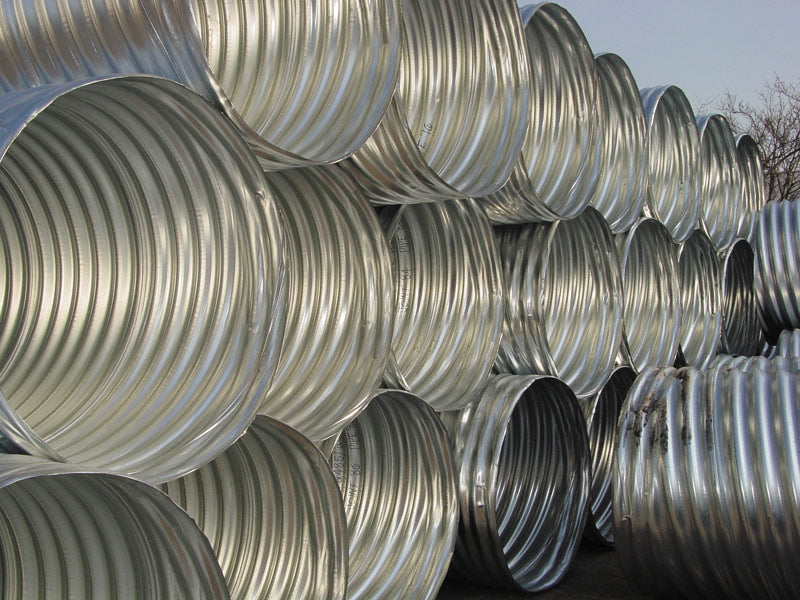When it comes to choosing culvert pipe we would generally recommend either HDPE plastic or galvanised steel. These pipes serve the essential purpose of conveying water, stormwater and other fluids beneath roads, railways and other structures.
Which pipe is right for your project depends on a number of factors. It’s crucial to select the right pipe to ensure longevity, cost effectiveness and efficiency.
HDPE plastic pipes
HDPE pipes are made from high-density polyethylene, a thermoplastic material known for its versatility and durability. The benefits include:
-
Highly resistant to corrosion, rust and chemical reactions, making them ideal for underground installations where moisture and corrosive substances are present.
-
They’re lightweight and flexible, allowing for easy handling, transportation, and installation. Their flexibility allows them to adapt to ground movements and absorb stress, reducing the risk of pipe failure in dynamic soil conditions.
-
Their smooth interior minimises friction and the accumulation of sediment or debris, enhancing the overall efficiency of fluid conveyance.
- They have a lifespan of 50 to 100 years. Their resistance to environmental factors ensures integrity over extended periods, reducing maintenance and replacement costs.
Galvanised steel pipes
Galvanised steel pipes are made of steel, coated with a layer of zinc. The zinc coating enhances the pipe's resistance to corrosion, making it suitable for various applications. The benefits include:
- Highly durable and can withstand harsh environmental conditions, including heavy loads, extreme temperatures, and corrosive elements. They have a long service life, making them a reliable choice for long-term projects.
- They offer excellent strength and structural integrity, making them suitable for high-load applications such as roadways and bridges. They can withstand heavy traffic and support significant weight without deformation.
- Whilst the initial cost of galvanised steel tanks may be higher than HDPE, their long lifespan and low maintenance requirements makes them more cost-effective over time. They require minimal maintenance repairs and replacements, resulting in reduced lifetime costs.
- At the end of their cycle, these pipes can be recycled and repurposed, minimising waste and conserving resources.
When considering whether to choose HDPE or galvanised steel pipe, you need to evaluate specific requirements for your project such as load-bearing capacity, anticipated traffic volume, and soil conditions.
You’ll also need to consider the environmental conditions of your project, including soil composition, water table levels and exposure to corrosive substances. Galvanised steel pipes are better suited for corrosive environments, while HDPE pipes excel in areas with high moisture or chemical exposure.
How can we help?
We supply and install concrete, HDPE and galvanised steel culvert pipes. For more information give us a call today 0121 351 3230 and our team of experts will be happy to assist you.
Alternatively, fill out our enquiry form:





